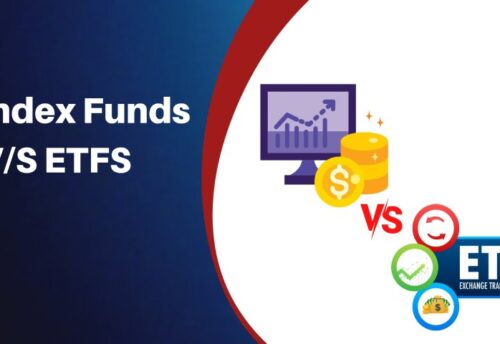
- 05/04/2025
- MyFinanceGyan
- 84 Views
- 3 Likes
- Mutual Fund
All You Need to Know About Dividend Mutual Funds
Investing in mutual funds has become a popular choice for individuals looking to grow their wealth over time. Among the various types of mutual funds available, Dividend Mutual Funds stand out as a preferred option for investors seeking regular income along with capital appreciation. These funds distribute dividends to investors at regular intervals, making them an attractive choice for conservative and income-focused investors.
In this comprehensive guide, we will explore everything about dividend mutual funds, including their types, benefits, risks, taxation, and how to choose the right one for your investment portfolio.
What Are Dividend Mutual Funds?
Dividend Mutual Funds are a category of mutual funds that invest in dividend-paying stocks or bonds and distribute a portion of their earnings to investors as dividends. These funds can be either equity-oriented or debt-oriented, depending on the type of securities they hold.
Types of Dividend Mutual Funds:
Dividend Mutual Funds can be broadly classified into the following categories:
Equity Dividend Mutual Funds:
- Invest primarily in dividend-yielding stocks of companies.
- Provide growth potential along with regular income.
- More suitable for investors with a moderate to high-risk appetite.
Debt Dividend Mutual Funds:
- Invest in fixed-income securities like government bonds, corporate bonds, and debentures.
- Offer more stable and predictable returns.
- Ideal for conservative investors seeking lower risk and steady income.
Hybrid Dividend Mutual Funds:
- Invest in a mix of equity and debt instruments.
- Balance risk and reward by diversifying the portfolio.
- Suitable for investors looking for a blend of income and capital appreciation.
Benefits of Investing in Dividend Mutual Funds:
Dividend Mutual Funds come with several advantages that make them a preferred investment choice for many investors. Some of the key benefits include:
- Regular Income Stream: Investors receive periodic dividend payouts, which can be a source of passive income, particularly for retirees and individuals seeking financial stability.
- Potential for Capital Appreciation: Apart from dividends, the underlying assets in these funds can also appreciate in value, helping investors grow their wealth over time.
- Diversification: These funds invest in multiple securities, reducing risk and providing exposure to various industries and asset classes.
- Professional Management: Managed by experienced fund managers, these funds help investors benefit from expert stock and bond selection strategies.
- Liquidity: Investors can easily buy or sell their mutual fund units, providing flexibility in accessing their investments when needed.
Risks Associated with Dividend Mutual Funds:
Like any investment, dividend mutual funds also carry certain risks that investors should be aware of before investing.
- Market Risk: Equity-based dividend funds are subject to stock market fluctuations, which can impact their performance.
- Interest Rate Risk: Debt dividend funds are sensitive to changes in interest rates, which can affect the value of the underlying bonds.
- Dividend Uncertainty: The fund is not obligated to pay dividends, and payouts depend on the earnings of the underlying assets.
- Tax Implications: Dividend income is subject to taxation, which may reduce overall returns for investors.
Taxation of Dividend Mutual Funds in India:
Taxation plays a crucial role in determining the net returns from dividend mutual funds. In India, dividends received from mutual funds are taxable in the hands of the investor as per their applicable income tax slab rate. Additionally, the following tax aspects apply:
Tax on Equity Dividend Mutual Funds:
- Short-term capital gains (STCG) on units held for less than one year are taxed at 20%.
- Long-term capital gains (LTCG) on units held for more than one year are taxed at 12.5% (if gains exceed ₹1.25 lakh per year).
Tax on Debt Dividend Mutual Funds:
- Capital Gain is taxed as per the investor’s income tax slab.
How to Choose the Right Dividend Mutual Fund?
Selecting the best dividend mutual fund depends on various factors, including investment goals, risk tolerance, and time horizon. Here are some key points to consider:
- Investment Objective: Determine whether you seek regular income, capital appreciation, or a mix of both before choosing the fund.
- Historical Performance: Analyze the past performance of the fund, but remember that past returns do not guarantee future performance.
- Expense Ratio: Lower expense ratios help in maximizing returns, as they indicate lower fund management costs.
- Fund Manager’s Expertise: A skilled and experienced fund manager can make a significant difference in the fund’s performance.
- Dividend Yield: Check the dividend yield of the fund, which indicates how much income the fund has historically distributed to investors.
- Risk-Return Profile: Assess the risk associated with the fund and match it with your risk appetite before investing.
Who Should Invest in Dividend Mutual Funds?
Dividend Mutual Funds are ideal for:
- Retirees and Senior Citizens: Looking for a steady income stream.
- Conservative Investors: Seeking lower risk with periodic income.
- Long-Term Investors: Wanting both dividends and capital appreciation.
- Investors Seeking Passive Income: Needing regular payouts for supplementary financial needs.
Conclusion:
Dividend Mutual Funds offer a great way to earn regular income while benefiting from market growth. However, they also come with risks, including market fluctuations and taxation. By carefully analyzing your financial goals, risk appetite, and fund characteristics, you can make an informed decision to include dividend mutual funds in your investment portfolio.
Before investing, it’s advisable to consult a financial advisor to ensure that your investment aligns with your financial objectives and risk tolerance.



